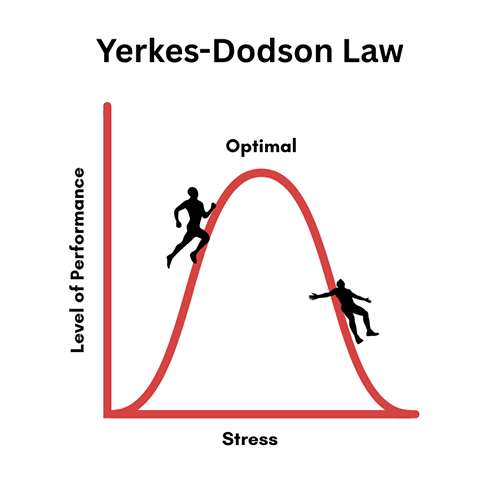Blog Short #264: When Should You Return Favors And When Not

Photo by A. C. for Unsplash+
If someone does something nice for you, do you feel an obligation to return the favor?
Most of us do.
Your neighbor offers to pick up your daughter from school when she picks up her son, so you can keep working on your report that has to be on your boss’s desk tomorrow morning.
A clerk at the hotel you’re staying at goes to extra trouble to straighten out your reservation, which was supposed to include two queen beds but has only one king. He gets you the right room and gives you a discount for the error. You, in turn, spend more money than you might have at the hotel restaurant, and you bring the clerk a café latte and pastry the next morning at the front desk.
These are obvious situations we all can relate to.
But a more subtle (yet not-so-subtle) one is receiving a donation request in the mail from a children’s hospital, along with a gift of personalized printed address labels. If you don’t make a donation, you might feel some guilt because, after all, they sent you a gift.
All of these scenarios reflect what Robert Cialdini calls the Rule of Reciprocity. It’s not a bad rule, but it’s often used to manipulate.
We’ll sort that out today and develop strategies to avoid it.
The Definition
The Rule of Reciprocity reflects an unspoken value taught early in life, which says that when you’re given something, you’re obligated to give something in return. Not begrudgingly, but out of gratitude.
This cultural norm has been in place for centuries and is a necessary structure in a society where we depend on each other to gather and share the resources needed to live and thrive.
“You help me, and I’ll help you.”
We’re a transactional species.
Reciprocity is also at the heart of our social system. Reciprocal acts of kindness and empathy create a sense of belonging and build social structures.
However, the rule of reciprocity can be exploited and often is. That’s what makes it difficult to know when to hold back and when not.
Here are two common tactics used. You’ll recognize them.
The Gift
In this scenario, someone gives you a gift, and afterwards, asks you to do something for them.
Sometimes this is done very upfront and feels genuine. For example, a neighbor brings you fresh veggies from her garden and says, “I have a favor to ask, and I’m hoping you’ll accept a gift from my garden in return.”
If you like and trust this person, you’d likely want to comply. “Sure, what can I do for you?”
The gift is not always an item. It can be a service or a favor.
You get a personalized free t-shirt from your car dealer when you come in to look at a new car.
Or your hired lawn service brings extra mulch for your flower bed without charge, then asks if they can do some new landscaping.
“Go shopping with me, and I’ll buy you lunch.”
Sometimes these offers feel manipulative, and others do not. Either way, accepting the gift likely compels you to comply.
Another response to the “gift” that research has shown is that when you accept a favor, service, or gift, you both comply with the request and give back more than you initially received.
You get a t-shirt, but you buy a new car! (That’s an exaggeration, but it makes the point.)
The Concession
The concession is a rather transparent tactic, but it still works.
Your friend asks you to loan him $100, but you say you can’t. Then he brings it down to $25, and you say yes.
The concession is a typical negotiation tactic. You ask for something out of the ballpark, and when you get rebuffed, you bring the request down to what you originally wanted.
You ask $400,000 for your house to a prospective buyer, and when he balks, you lower it to $325,000.
In the case of buying a house, this technique is expected. It’s not expected in personal situations as much, and it can catch you off guard when it happens.
The way it works is that you usually quickly comply with the lower request because you’re only comparing it to the larger one rather than evaluating it on its own merits.
You get boxed into an either/or decision and make a hasty decision.
This technique is called the “rejection-then-retreat” concession.
How to Handle Requests, Favors, and Concessions
First, you need to practice recognizing when they happen.
Awareness is key; it gives you mental space to avoid automatic compliance.
For the most part, reciprocity benefits us because it reflects our desire to work together, take care of each other, and show empathy and kindness.
Being manipulated into compliance is another story. You want to maintain control of when and why you reciprocate or comply with something.
When unsure, ask yourself these questions:
1. What is the motive of the person, company, or organization that’s making a request of you or providing an unsolicited gift?
In personal interactions with people you know, most situations are legitimate.
However, if you’re involved with someone who consistently does things for you that you didn’t ask for, to the point of being annoying or invasive, then the motivation is not healthy.
This person either wants something from you or is attempting to exert control, or is perhaps dealing with feelings of unworthiness or low self-worth and needs constant affirmation.
Time to set a boundary in this case. Gently tell the person involved that you would like them to stop doing things you haven’t asked for.
If they argue they enjoy it, let them know that although you appreciate their intent, it’s causing you stress, and they need to stop, and then stick to it.
2. Did I ask for this gift?
I use this one when I get offers to buy something or to give a donation.
You do not and cannot donate to everything, or buy things you don’t want or need. You have the right to make those decisions for yourself.
Even though you know this, social media, excessive advertising, or pressure from friends or relatives can make you comply with something you don’t truly want.
Separating true guilt or remorse for something you’ve done from imposed guilt from someone trying to get you to take a specific action is a key strategy to avoid the misuse of reciprocity.
It’s not necessarily wrong for an organization or company to use these tactics. They’re part of normal sales strategies.
Robert Cialdini calls these companies and sales folks Compliance Professionals. And they are! That’s their job.
But it’s not your job to comply.
Compliance professionals also hang out in social groups, so be aware.
3. Do I always need to give back?
No, sometimes you can’t. People who truly give usually aren’t looking for a return. The return comes in the pleasure of helping someone.
Sometimes you pay it forward by helping someone else later, when the opportunity presents itself.
Yet most of us will want to return the favor or be of service to those who have done something for us when we can. It’s a natural impulse, reflective of a conscience and a sense of kinship with others.
It’s also the mainstay of our interdependent culture and a requirement for healthy, thriving relationships.
Just don’t force it if it doesn’t feel right to you.
The Takeaway
Most incidences of reciprocity in everyday relationships are honest and without ulterior motives. But if you’re the least bit unsure, question it.
This is especially true when it comes to sales, either of products or ideas, or when dealing with people who cross boundaries easily.
Step back and ask: What’s the motive? Is this of value to me?
Take your time before saying “yes.”
When I’m not sure about something, I use the 24-hour rule: I sit on it for 24 hours before making a decision. Doing that avoids knee-jerk compliance. It helps! A lot!
That’s all for today.
Have a great two weeks!
All my best,
Barbara










